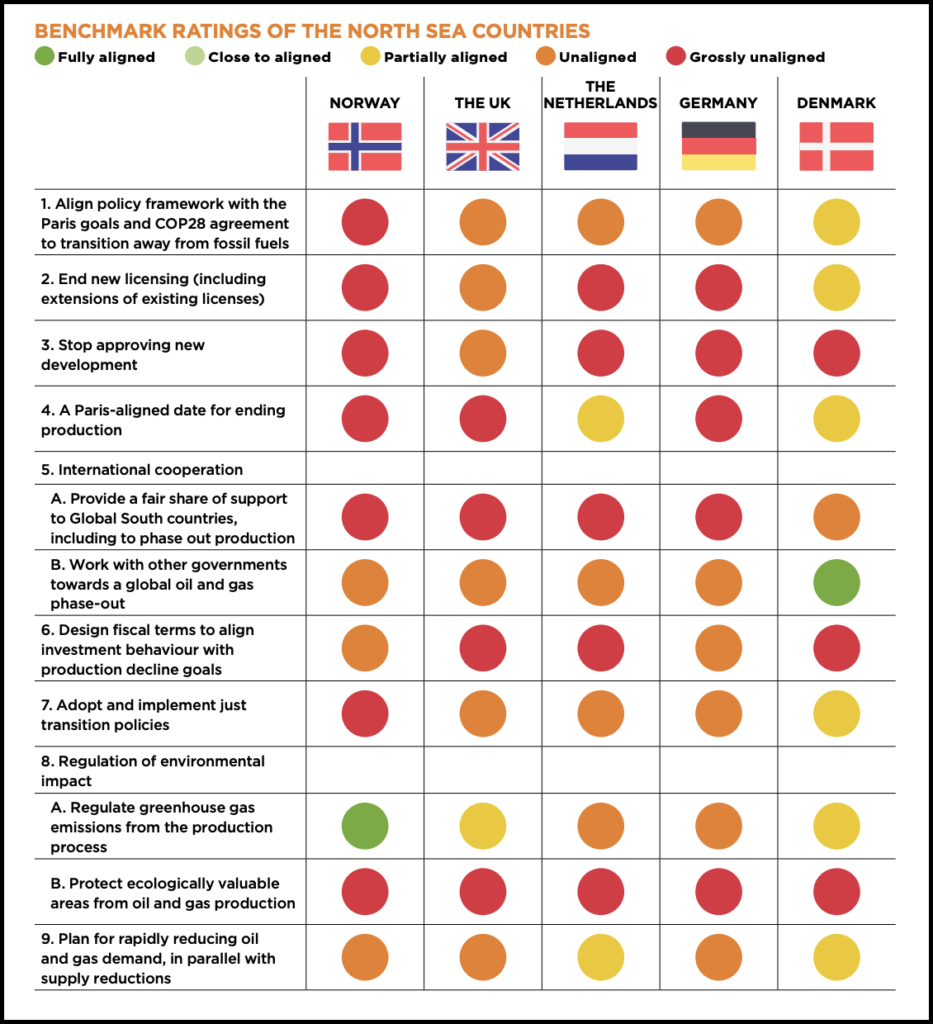
Climate policies in the manifesto of the Labour Party, projected to win the General Election next Thursday, 4 July, would see the UK replace Denmark as frontrunners for a green transition out of Europe’s North Sea countries, according to new analysis by Oil Change International.
The climate action organisation says the fringe Green Party leads on climate pledges while Labour “shows promise,” in analysis released this week of the major UK political parties’ manifestos. And green energy transition policies have been a contentious topic in the UK’s slew of pre-election debates.
The report questions, however, how a Labour government would fund its green energy agenda, echoing criticism party leader Keir Starmer faced over the decision to abandon his $28bn ($35.5bn) green energy policy.
Of the incumbent Conservative Party, the report says Prime Minister Rishi Sunak’s pledges would “worsen the UK’s climate performance” with commitments to annual oil and gas licensing rounds and “gross misalignment in key areas”.
Will Labour phase out fossil fuels. And how?
One of Labour’s front-and-centre policies is to form Great British Energy, a publicly owned energy company.
GB Energy sits within Starmer’s proposed Energy Independence Act, which also enshrines Labour’s target to decarbonise the UK’s power grid by 2030.
Questions have been raised over how feasible the 2030 target is, and whether Labour will introduce a licensing ban, yet to materialise in any part of the centre-left party’s manifesto.
Ed Miliband, Shadow Energy Secretary, has repeatedly promised that GB Energy will reduce high-cost bills for citizens and cut the UK’s dependence on Russian oil.
While Labour has promised a considerable windfall tax on North Sea oil and gas producers, doubts over funding remain, according to Rosemary Harris, Oil Change International’s Senior Campaigner.
“In addition to what has already been pledged as priorities, the Labour Party must prioritise a production end date in the early 2030s and provide the essential level of investment needed to ensure a just transition for workers and communities in the UK,” said Harris in conversation with Offshore Technology.
“We risk an unjust transition unless Labour are able to leave behind their self-imposed fiscal rules and put the funding needed into building a clean energy industry and providing well paid, good-quality jobs across the UK.”
Current Energy Secretary Claire Coutinho described Labour’s climate pledges as “mad” and “unachievable”.
Could the UK become a North Sea leader in green energy?
In March, Oil Change International ranked the UK as second-worst of the North Sea nations at phasing out fossil fuels.
The organisation currently evaluates Denmark as the most aligned with the Paris Agreement’s climate objectives, followed by Germany, then the Netherlands.
Its analysis says Labour’s manifesto, if brought into fruition, “would put the UK ahead of Denmark, currently the highest performing North Sea country”.

The UK and Norway are widely regarded as the most environmentally damaging of the five so-called North Sea countries due to both governments’ decisions to extend oil drilling for at least a decade beyond their net zero deadline of 2050.
Labour has promised to stick to the 2050 deadline.
Starmer also plans to create a new ‘Clean Power Alliance’, bringing together a coalition of countries to tackle climate change – and amplify the UK’s diplomatic reach on environmental issues.
All eyes now turn to next Thursday’s election and the first 100 days of the new UK government. Should Labour gain office, will Starmer, Miliband and the rest follow through on their raft of promising green energy pledges?



